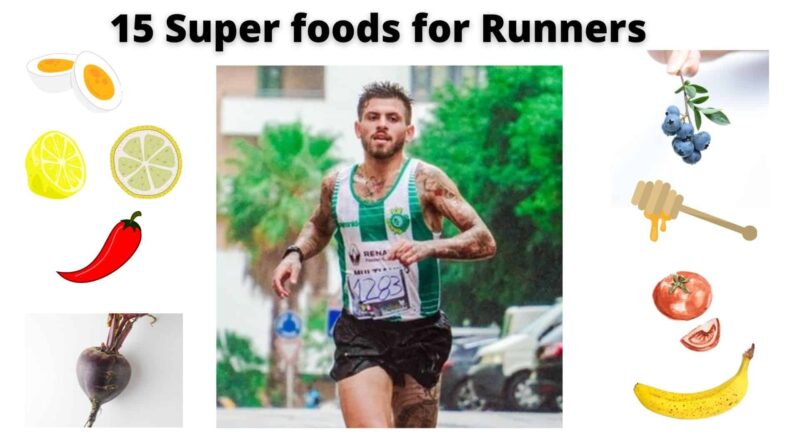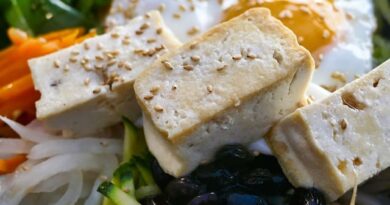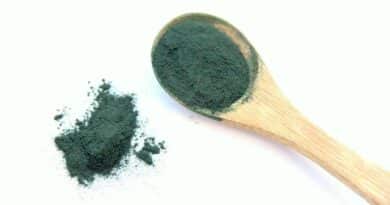15 SuperFoods For Runners
Diet plays an important role if you want success in your running shoes. Here, in this article, we provide you with 15 superfoods for runners which are excellent foods that boost your energy levels and strengthen your health.
See Also :
- Spirulina – a natural way to strengthen immunity
- Top Health Benefits Of Tofu
- 15 SuperFoods For Runners
15 Superfoods for runners
Natural Beauty Tips – Beauty Tips
1. EGGS
The protein in eggs contains all the essential amino acids that the body needs to build and maintain muscle mass. In particular, the amino acid leucine is important for the use of glucose by muscles, so a diet rich in leucine is an advantage when exercising or running. When muscles need to recover after, for example, endurance or strength training, the process also depends on making sure you get leucine through the diet. In addition, eggs are a cornucopia of vitamins and minerals.
EAT: Up to 3 eggs for one of the main meals of the day.
2. LEMON
Lemon provides sugar and flavour for the drinking water and also contains plenty of vitamin C as well as sodium and potassium, making lemonade an excellent electrolyte drink.
DRINK: Add the juice from half a lemon to your water bottle and drink the mixture during exercise.
3. BLUEBERRIES
The small berries are filled with antocyanins that reduce muscle aches in the days after a demanding training session. They also contain plenty of vitamin C that helps the body absorb iron and supports the immune system, which is extra exposed after hard training. The berries are filled with healthy dietary fibers and carbohydrates.
EAT: A large handful of fresh berries in the salad or on the oatmeal/yoghurt.
4. CHILI
Rich with the chemical compound – capsaicin, which causes the body to secrete a lot of endorphins also act as pain-relieving agents. The fine vitamin C content helps the body rebuild joints and tendons after hard training.
EAT: As part of your recovery meal.
5. BEETROOT
Beetroot juice can provide a significant performance boost to runners and exercisers. The high nitrate content of beetroot improves the body’s ability to draw oxygen into the working muscles.
DRINK: Drink half a liter of beetroot juice or a concentrated shot 2-3 hours before exercise.
6. HONEY
Honey provides absorbable energy to the brain and muscles. A research study found that manuka honey in particular also kills stomach-hostile bacteria and boosts metabolism.
EAT: A tablespoon at breakfast.
7. KALE
High in vitamins A, B6, C and K, as well as iron, calcium, carbohydrate, protein and fibre, kale is one of the absolute kings of the green kingdom. Calcium gives you strong bones, while iron is included in the production of the red blood cells, which carry oxygen out to the muscles. Vitamin C and selenium strengthen the immune system. The healthy dietary fiber benefits digestion, and also has anti-inflammatory properties.
EAT: As often as you can!
8. COCOA SKIMMED MILK
Unlike the strength-trained people, runners do not need huge amounts of protein after exercise, but a cocoa-skimmed milk contains an optimal distribution of carbohydrates and proteins. Skimmed milk is just as fine in terms of health and saves you the sugar if you are very particular about calorie intake.
DRINK: Grab half a litre after exercise.
9. CHIA SEEDS
The small super seeds have a unique concentration of, among other things, the calcium, omega-3 and dietary fibre. Two spoonfuls contain more omega-3 than a salmon fillet, and there are four times as many dietary fibers as in flaxseeds. The chia seeds also contain plenty of vegetable protein (21 g of protein per 100g).
EAT: Use as sprinkle on breakfast or vegetables, or use them for baking to make, for example, buns healthier, and eat them before/during exercise.
10. BANANA
The excellent carbohydrate content provides as much fuel as an energy drink, but is not nearly as acidic and therefore far more stomach-friendly than both gels and energy drinks. In addition, the banana has a nice potassium content. The mineral, together with salt, is essential for the cells’ ability to handle the fluid you consume and secrete.
EAT: A banana during or after exercise.
11. SALMON
The fatty fish is rich in proteins (about 20 g per 100 g of salmon) that the body uses to rebuild the smashed muscles. The omega-3 fatty acids act as anti-inflammatory, thereby helping muscles, joints and tendons to recover on top of a hard training load. It is also rich in the antioxidant selenium and vitamin D.
EAT: A salmon steak or a salmon meal at least once a week.
12. AVOCADO
Runners need extra amount of fat in their diet, and here the avocado is a super choice. It contains plenty of healthy monounsaturated fat, which is highly anti-inflammatory. In addition, just half an avocado covers 10 per cent of your daily need for dietary fibre, and minerals such as iron and potassium, as well as a strip of B vitamins make the avocado essential.
EAT: Mix it in salads.
13. PEAS
With 6g of protein per 100g, peas belong to the green kingdom’s largest suppliers of protein. At the same time, the proteins of the peas contain a large part of the essential amino acids. In addition, peas are rich in slow carbohydrates, dietary fiber and a high quantity of vitamin C.
EAT: A few hundred grams as an accessory for dinner.
14. QUINOA
When it comes to carbohydrates, quinoa seeds are eminent. At the same time, they are low on the glycemic index, keeping blood sugar levels stable. In addition, they contain plenty of protein of the highest quality and even nice amounts of omega-3 fatty acids.
EAT: Instead of, for example, brown rice for the evening meal.
15. TOMATO
The low-calorie vegetable contains plenty of lycopene, which acts immune-boosting. In addition, a fine content of vitamin C and E as well as beta carotin that acts as anti-inflammatory.
EAT: Perfect as part of the recovery meal after exercise.
Search Jobs – CLICK HERE
Popular Posts :
- 12 Ways To Manage Depression Without Medication
- 7 Ways To Overcome Laziness To Exercise
- 7 Habits That Drain Your Energy
- 8 Foods That Increase the Risks of Heart Attacks
- 7 Healthy Tips for Teenagers
- What is Granola? Is Granola Healthy?
- Red clover and its medicinal properties
- 7 Home Remedies To Relieve Constipation Naturally
- 5 Easy Ways to Control Overeating Desire
- Heart Attack At A Young Age
- Spirulina – a natural way to strengthen immunity
- 10 Signs Your Body Is Lacking Minerals
- 8 Incredible Benefits of Mango Ginger
- Soursop (Graviola) fruit Health benefits and uses
- Top Benefits Of Palmyra Fruit (Iceapple)




